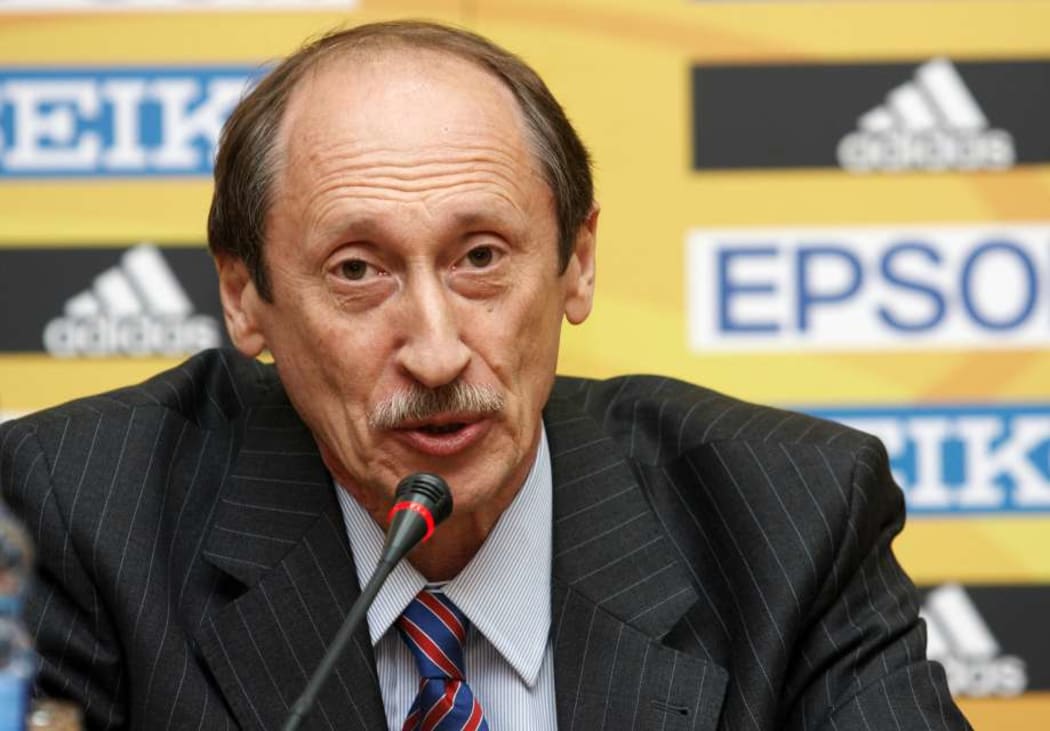A Rio Olympics without a Russian athletics team looks an ever-stronger possibility, after the sport's governing body said that the athletics superpower had "significant work to do" to have any chance of having its ban lifted in time.

Former president of the Russian athletics federation Valentin Balakhnichev. Photo: SUPPLIED
Norwegian Rune Andersen, heading a five-person task force reviewing Russian reforms after November's suspension from global competition, said Russian athletics had made "significant progress", including changing its president and council and developing anti-doping educational programmes.
"However, the view of the task force is that there is significant work still to be done to satisfy the reinstatement conditions," he told a news conference after a Monaco meeting of the Council of the International Association of Athletics Federations (IAAF).
"We still need to interview athletes and coaches named in the WADA (World Anti-Doping Agency) commission report to understand the scope and nature of previous doping activities."
IAAF president Sebastian Coe, whose first year in office has involved a comprehensive shake-up of athletics to eradicate corruption and doping, suggested a final decision would be taken at a council meeting in May.
"You should conclude that these decisions will be taken at that point," Coe said.
"There were no preordained outcomes today. We wanted to hear what Rune and the team had to say and we were unanimously satisfied that more work needed to be done before we could ultimately make a decision.
"My job is not actually to get as many athletes to the Olympic Games as possible. The job of the Council is to make sure that those athletes who are going to the Olympics are clean and are in systems that are based upon integrity.
It was the report of the WADA commission which led to the suspension of Russia, which traditionally battles with the United States to be the sport's dominant force, and investigations into broader corruption affecting also the administration of the sport.
Coe and Andersen expressed concern about a documentary on German TV channel ARD last week that said Russia had made little progress on reform, that coaches banned for doping were still operating in the country and officials newly-installed as part of the clean-up were tipping off athletes ahead of drugs tests.
"We discussed the contents of that programme and the task force member are very concerned and investigating further," Coe told Reuters.
Russian Council member Mikhail Butov said his country had worked hard over the last four months but accepted there was still much to be done.
"We have changed many of the personnel and followed the recommendations," he told Reuters. "We are working hard to educate coaches and athletes but it takes time."
Asked if he felt his country could satisfy the task force in time for reinstatement before Rio, he added: "We hope we can. We have made much progress, as Mr Andersen reported, and everybody involved is committed to delivering what is needed."
Coe also said that five other countries - Ethiopia, Morocco, Kenya, Ukraine and Belarus - have been listed as in "critical care" over their anti-doping arrangements, although none of them were at risk of immediate ban or missing the Olympics.
Coe also told Reuters that Russia's doped runner-turned whistle-blower Yulia Stepanova could still be allowed to compete at the Rio Games under an IOC flag but that her situation was complex.
Stepanova, an 800-metres runner, provided evidence of widespread doping that contributed to its ban and WADA said this week it would ask the IOC and IAAF to allow "a courageous athlete" to compete as an independent.
"I'm really happy for that issue to be discussed again and that we properly understand the details, legal and logistic, of her eligibility to compete," Coe said.
-Reuters

